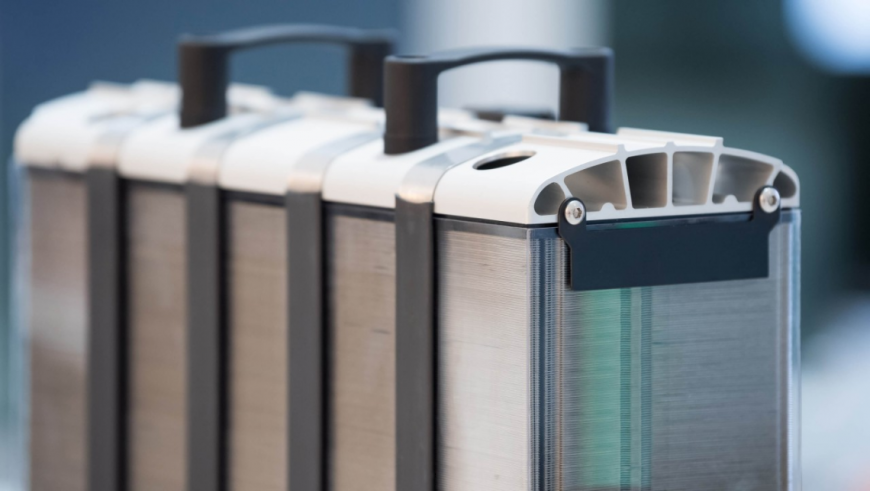What’s the winning formula for making fuel-cell stacks? Bosch has joined forces with the startup PowerCell Sweden to put this technology into mass production — and usher in its breakthrough.
Fuel-cell technology’s vast potential
On the surface of it, there’s very little to distinguish a fuel-cell car from one that runs on gasoline or diesel. Once its fuel has been topped up — which takes just a few minutes — the car’s range is over 500 kilometers. But there is one crucial difference: an electrical powertrain produces zero local emissions. And that’s why hydrogen technology is sure to figure prominently on the road to low-carbon transportation, especially when it comes to electrifying heavy trucks. But before fuel-cell vehicles can rival conventional ones, there is still one big obstacle to surmount: steep manufacturing costs. Bosch and the startup PowerCell Sweden aim to solve that problem. To bring costs down, the two companies are focusing their attention on the fuel-cell stack, the heart of the hydrogen powertrain. This stack of proton-exchange membrane fuel cells (PEMFC) — also known as polymer electrolyte membrane (PEM) fuel cells — is where an electrochemical exchange of the reactant gases hydrogen and oxygen produces electricity.



